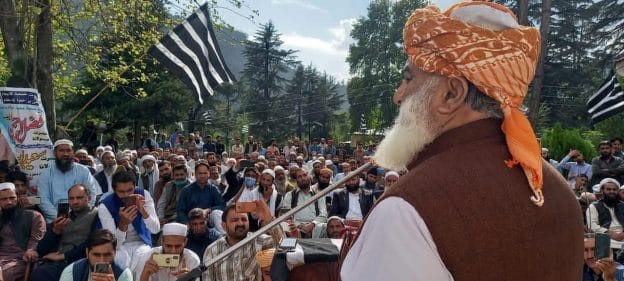
Maulana Fazlur Rehman is one of the most influential religious and political figures in Pakistan. As the leader of the Jamiat Ulema-e-Islam – Fazl (JUI-F), his political career spans decades, marked by his firm stance on conservative Islamic values and his efforts to bridge the gap between religion and politics. Fazlur Rehman’s leadership of JUI-F has positioned him as a key player in Pakistan’s political landscape, especially in forming alliances and shaping public discourse.
Early Life and Background
Born on June 19, 1953, in Dera Ismail Khan, Khyber Pakhtunkhwa, Fazlur Rehman comes from a family deeply involved in Islamic scholarship and politics. His father, Mufti Mahmud, was a prominent Islamic scholar and political leader, serving as the Chief Minister of Khyber Pakhtunkhwa (formerly NWFP). Growing up in such a politically active family, Maulana Fazlur Rehman was naturally inclined towards politics and religious leadership from an early age.
Fazlur Rehman received his education from leading religious institutions in Pakistan, gaining deep insights into Islamic jurisprudence. This educational background shaped his political ideology, which emphasizes the central role of Islam in Pakistan’s governance and public life.
Political Career and Leadership of JUI-F
Maulana Fazlur Rehman took over the leadership of JUI-F after his father’s passing. Under his leadership, the party became one of the most organized and influential religious-political entities in Pakistan. JUI-F’s main agenda revolves around advocating for the implementation of Sharia law and promoting conservative Islamic values. However, Rehman has also proven to be a pragmatic politician, capable of forging alliances with secular parties when necessary.
Fazlur Rehman has been elected multiple times to Pakistan’s National Assembly, where he has actively participated in legislative affairs. His ability to navigate Pakistan’s complex political environment has made him a seasoned political leader. He has often played the role of a kingmaker, using JUI-F’s influence to align with major political parties such as Pakistan Muslim League – Nawaz (PML-N) and Pakistan People’s Party (PPP), depending on the political climate.
The Role of JUI-F in Pakistan’s Politics
JUI-F, under Fazlur Rehman’s leadership, has focused on advocating for Islamic principles in governance. The party has a significant following in Khyber Pakhtunkhwa and Balochistan, where traditional values hold strong influence. JUI-F’s supporters largely come from religious seminaries and rural areas, where the party’s message of conservative Islam resonates deeply.
While JUI-F has been part of numerous coalition governments, Fazlur Rehman has skillfully balanced his party’s Islamic agenda with practical political considerations. His ability to negotiate with more secular parties shows his flexibility and pragmatism in politics.
Opposition to Imran Khan’s Government
One of the most defining moments of Fazlur Rehman’s recent political career came in 2019 when he led the “Azadi March” against Prime Minister Imran Khan’s Pakistan Tehreek-e-Insaf (PTI) government. The protest, which brought thousands of JUI-F supporters to Islamabad, was aimed at pressuring Khan’s government to resign, accusing it of coming to power through rigged elections.
Although the march did not achieve its immediate objective of forcing Khan out of office, it showcased Maulana Fazlur Rehman’s ability to mobilize massive crowds and challenge the government. The protest also reaffirmed his position as a key opposition leader, capable of influencing national politics.
Controversies and Criticism
Like many seasoned politicians, Maulana Fazlur Rehman has not been without controversy. Critics accuse him of using religion for political gain and question his party’s effectiveness in improving the socio-economic conditions of its supporters. His close ties with the military establishment in earlier years have also drawn criticism, although he has since positioned himself as a staunch opponent of the military’s interference in politics.
Additionally, Fazlur Rehman’s wealth and his long career in politics have led to allegations of corruption, though he has repeatedly denied these claims. Despite the controversies, Fazlur Rehman remains a central figure in Pakistan’s political landscape, admired by his supporters for his unwavering commitment to Islamic values and political resilience.
A Key Player in Pakistan’s Future
Maulana Fazlur Rehman’s political journey is far from over. As the leader of JUI-F, he continues to advocate for conservative Islamic governance in Pakistan. His ability to adapt to changing political realities while staying true to his core beliefs has made him a significant player in the country’s politics.
Whether through protests, parliamentary politics, or coalition building, Fazlur Rehman has demonstrated that his voice carries weight in shaping Pakistan’s political future. As the country faces ongoing challenges, including economic instability and debates over the role of religion in public life, Maulana Fazlur Rehman’s leadership will continue to be a crucial factor in Pakistan’s evolving political dynamics.
Conclusion
Maulana Fazlur Rehman’s leadership of JUI-F has cemented his role as a vital force in Pakistan’s political arena. His ability to balance religious ideals with practical politics, while navigating controversies and criticism, makes him one of the most resilient and influential leaders in the country. As he continues to advocate for Islamic governance and engage in political alliances, his role in shaping the future of Pakistan remains significant.


